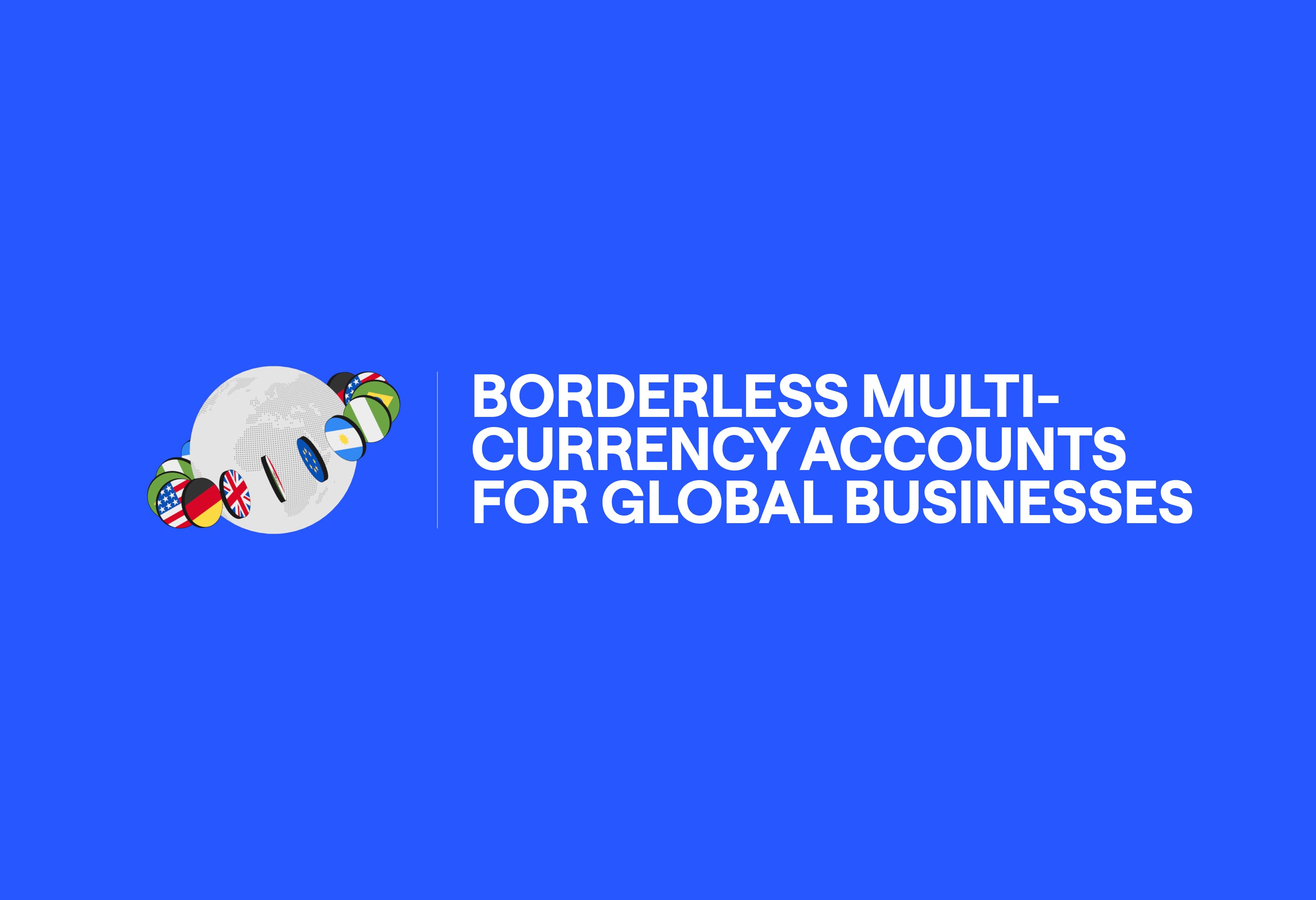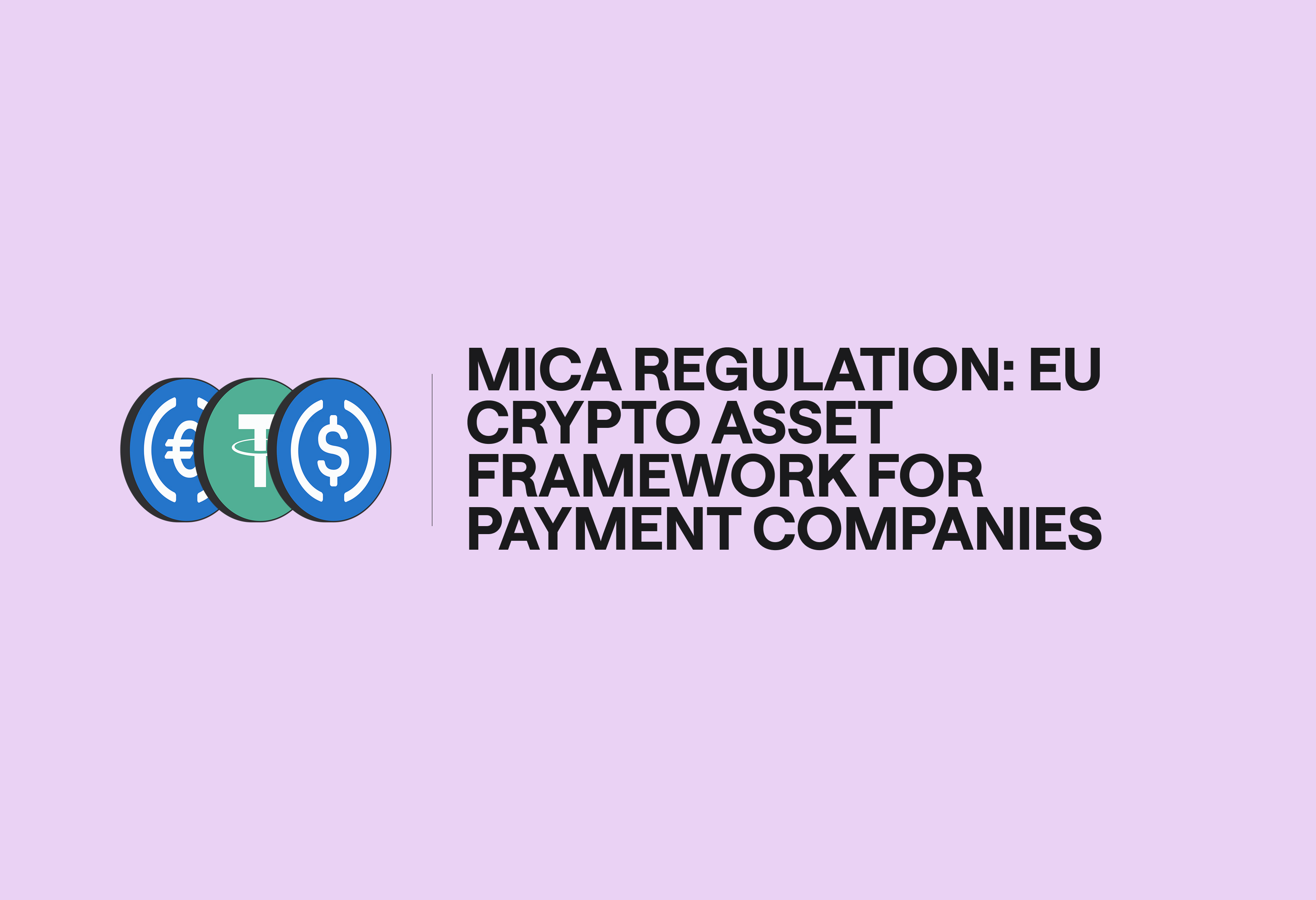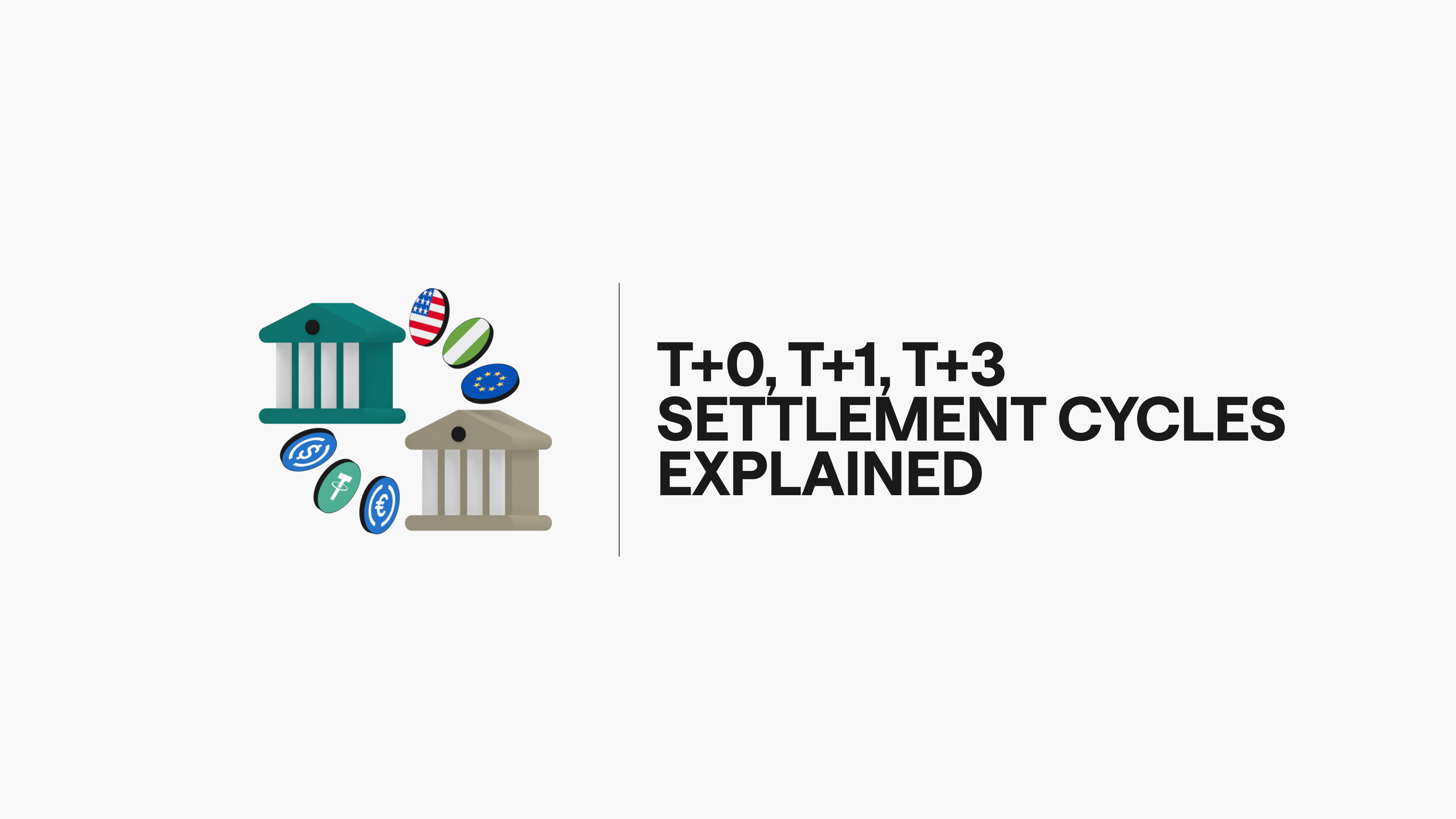
How Borderless Multi‑Currency Accounts Benefit Global Businesses
- Borderless multi-currency accounts let businesses hold, send, and receive multiple currencies, such as USD, EUR, and GBP, from a single account, avoiding the need for multiple bank relationships.
- They cut foreign exchange costs to under 1% and enable instant global payments using digital rails such as virtual IBANs, APIs, and stablecoins like USDc and EURc.
- These accounts improve cash flow, simplify accounting, and accelerate global expansion, making borderless finance the future of international business banking.
Managing payments across borderless multi-currency accounts and jurisdictions has never been more complex, or more rewarding. A borderless multi‑currency account lets your company hold USD, EUR, GBP and other currencies in one place, convert money at fair FX rates and move funds anywhere in seconds.
These digital accounts are built for global commerce: they use virtual IBANs, programmable APIs and stablecoins like USDc and EURc to deliver near‑instant settlement and low fees. In 2025, the difference compared with traditional banking is stark: global treasury teams pay <1% in processing fees on Due’s platform and just 0.2–0.7% for FX; like-for-like currency settlement is usually under $0.50.
Multi‑currency accounts reduce FX costs, improve cash flow, simplify accounting and help you expand into new markets without opening local bank branches. The future of global banking is borderless; this guide explains how it works and why your business should care.
What is a borderless multi‑currency account?
A borderless multi-currency account is a digital business bank account that lets companies hold, send, and receive multiple currencies, such as USD, EUR, and GBP, from one platform. It eliminates the need to open separate accounts in each country, simplifying global payments and treasury management.
How it works:
- Provides local bank details (IBANs, ACH numbers, or sort codes) for each supported region.
- Supports instant transfers and low-cost FX conversion through digital payment rails.
- Enables faster onboarding and real-time visibility across multiple currencies.
These accounts streamline international operations by giving finance teams one dashboard for all currencies, reducing banking complexity and transaction costs.
Fintech platforms such as Due take this concept further by embedding digital currencies directly into the account. On Due’s platform, global accounts enable users to send, receive, hold, and exchange digital currencies like USDc and EURc from anywhere.
Core features include:
- Flexible custody options: Choose between custodial or non-custodial accounts, depending on your security and compliance needs.
- Wallet integration: Bring your own wallet infrastructure or use Due’s and partners’ MPC-secured wallets for safe digital asset management.
- Instant onboarding: Open an account and complete KYC digitally in under two minutes, no paperwork or branch visits required.
Speed and accessibility: Traditional banks can take weeks to open foreign currency accounts, but Due’s platform connects you to global payment rails in just a few clicks.

How multi‑currency accounts work
Managing payments across multiple currencies is simpler than ever. Multi-currency accounts centralise global funds, using virtual banking tools and digital rails to let businesses hold, send, and receive money worldwide from a single platform.
Holding multiple currencies in one account
A multi-currency account lets businesses store and manage different currencies, such as USD, EUR, and GBP, under a single account. When you deposit funds, the platform automatically creates virtual sub-accounts for each currency. This allows you to send, receive, and hold multiple balances without opening separate bank accounts across regions.
Most platforms also provide virtual bank details for local payments, such as:
- IBANs for euro transactions in the EU
- ACH or Fedwire numbers for the United States
- Sort codes and account numbers for the UK
- And in some cases, regional identifiers such as CLABEs (Mexico), NUBANs (Nigeria), or UAE account numbers
These virtual details make it easy for global businesses, especially SaaS platforms, exporters, and marketplaces, to collect local payments as if they were domestic transfers.
Fintech platforms like Due enhance this process by supporting funding via bank transfers, mobile money, or crypto wallets in 80+ countries. Its non-custodial design lets users retain private keys and choose their custody model, while MPC-secured wallets (through partners like DFNS) provide advanced security and flexibility.
Real‑time currency conversion
Per the World Bank’s RPW (Q1 2025), the global average remittance cost is 6.49% (fees + FX). Bank corridors are often higher, and settlement can take multiple days, straining working capital. Borderless accounts eliminate those hidden costs by using interbank FX conversion rates or stablecoin rails.
Due goes further by offering instant, on‑chain swaps between stablecoins and fiat currencies with a spread of roughly 0.2–0.7%. When converting USDc to EURc (or vice versa), Due executes the transaction at the market rate plus spread, not at a fixed 1:1 rate. This transparency means CFOs know exactly how much their conversions will cost and can execute multiple conversions throughout the day without paying punitive mark‑ups.
Because the system sits on digital rails, settlement is real‑time. Payments through Due’s transfers platform reach the recipient in seconds using stablecoins or local instant payments networks, SEPA Instant in Europe, Faster Payments in the UK, Pix in Brazil and UPI in India.
The platform promises that you can send USDc or EURc instantly or transfer funds locally across 80+ countries, letting the recipient receive the funds in their local payment method. When cross‑border payments flow through stablecoins, the entire transaction settles on‑chain; no correspondent banks or SWIFT fees apply, and funds are final.
Integration with global payment platforms
Multi‑currency accounts aren’t useful in isolation; they become powerful when integrated into your billing, payroll and e‑commerce systems. Due’s payments product supports global checkout in more than 50 markets, accepting bank transfers, mobile money and digital wallets with near‑zero fees. Merchants can accept payments in a customer’s preferred currency and automatically settle into USDc via the platform. Customers can pay via Metamask, Coinbase or any of the 170+ supported wallets, and the platform’s built‑in interoperability connects networks such as Ethereum, Arbitrum, Optimism and Base. This network‑agnostic design means businesses don’t need to worry about blockchain fragmentation; they can accept digital payments and convert them into fiat or stablecoins automatically.
For pay‑outs and treasury, the Transfers product provides local rails. The service boasts global‑local coverage, allowing you to send money to 80+ countries using your local payment method and letting the recipient get funds in theirs. You can choose to pay suppliers through bank transfers, send funds to crypto wallets or deposit into mobile money accounts. These options let CFOs and finance teams orchestrate global treasury management from a single dashboard or API.
Key benefits of multi-currency accounts
Reduced FX fees and faster payments
The most obvious benefit is cost. Traditional banks and payment processors charge anywhere from 4% to 6% in FX mark‑ups and hidden fees. By contrast, cross-border payments platforms, such as Due process payments, charge fees of under 0.2% to 0.3% for cross-border B2B payments and under 1% for merchant processing.
The savings compound when your business runs payroll or supplier payouts every month. Additionally, because multi‑currency business accounts settle on modern payment rails, you get your money instantly in USDc or within a day in local currency, compared with the two business days typical of SWIFT transfers.
Faster payments improve working‑capital cycles. A UK‑based SaaS company, for example, can issue invoices in euros to European clients using a virtual IBAN, receive the funds in seconds via SEPA Instant and immediately convert them into British pounds or USDc at transparent rates. With lower FX fees and quicker settlement, the business can pay US developers, Indian contractors and its London office payroll without tying up capital in transit.
Improved cash flow and liquidity management
Borderless accounts let you consolidate global balances in one dashboard instead of juggling multiple bank statements. Because you hold multiple currencies under a single account, you can arbitrage FX markets: convert when rates are favourable or hold digital dollars/euros as hedges. Due’s EURC primer notes that companies can move between euro and USDC stablecoins instantly and balance currency risk. For treasurers, real‑time visibility into cash positions across currencies leads to smarter forecasting and liquidity planning. The ability to reallocate capital to emerging markets without incurring high wire fees, a feature of Due calls Borderless treasury, means capital is no longer trapped in bank networks; it flows wherever your strategy demands.
Easier expansion into new markets
When expanding to a new region, businesses face two immediate hurdles: opening local or global, digital business bank accounts and complying with local payment rules. A borderless multi‑currency account removes both hurdles. Due provides virtual accounts in USD, EUR, GBP, CLABE (Mexico), NUBAN (Nigeria) and UAE account numbers, letting you receive payments from customers in those regions as if you were local. The platform’s global checkout accepts bank transfers, mobile money and digital wallets across 50+ markets and automatically settles into your chosen currency. This local‑presence‑without‑presence approach enables marketplaces and SaaS companies to enter new geographies without incorporating subsidiaries or navigating complex bank onboarding procedures.
Simplified accounting and reporting
Consolidating multi‑currency balances in one place simplifies bookkeeping. Because the platform auto‑converts funds into your base currency, you avoid manual reconciliations and multiple bank statements. Real‑time dashboards show incoming and outgoing flows across currencies, networks and payment methods. And since transactions settle on the chain or through local clearing systems, the audit trail is immutable. Due’s payments product emphasises that digital payments are irreversible and fraud‑proof, reducing chargeback costs and simplifying month‑end reporting. Integrations with ERP and accounting software via API mean your finance team can automate reconciliation and comply with regulatory requirements.
Better transparency for global teams
Global companies often pay remote employees and contractors in their local currencies. Multi‑currency accounts support this by enabling international transactions for SMEs. Due’s transfers platform includes a feature to let your nomad employees get paid in their local currency and preferred wallet or account. Because each transaction is logged on a distributed ledger, employees can see when funds were sent and track conversions. CFOs can set roles and approval workflows through the API while maintaining an auditable history. Transparency fosters trust and reduces disputes over foreign exchange fees and payment timing.
Case scenario: UK–EU–US SaaS startup
Consider a SaaS startup headquartered in London with clients in Germany and the United States. Under a traditional banking model, the company would maintain separate euro and dollar accounts, incur high FX fees when clients pay in euros or dollars, and wait days for funds to arrive. With a borderless multi‑currency account:
- Billing: The startup issues invoices in euros using a virtual IBAN. German clients pay via SEPA Instant, and funds arrive immediately in the euro sub‑account.
- Conversion: The finance team converts some euros into USDc at a market‑rate + 0.2–0.7 % spread and leaves the rest in EURC to hedge FX exposure.
- Payroll and Expenses: The USDc portion funds U.S. contractors instantly via a digital wallet; the EURC portion is used for upcoming European marketing expenses. British staff are paid in GBP through Faster Payments by converting part of the USDc balance through the platform’s FX engine.
- Reporting: A unified dashboard shows the euro, USDc and GBP balances in real‑time. The CFO exports a CSV directly into the accounting system; each transaction is already categorised.
This scenario illustrates how multi‑currency accounts reduce friction, lower costs, and provide real‑time visibility across multiple jurisdictions.
Who needs multi‑currency accounts?
While any company that sells or sources internationally can benefit from a borderless account, certain business models see outsized gains:
- Startups and e‑commerce platforms: With clients and suppliers across continents, startups need to accept local payments and pay remote teams quickly. Multi‑currency accounts eliminate the need for separate bank accounts and allow instant settlement.
- Exporters and importers: Businesses that trade physical goods often juggle invoices in different currencies. Holding multiple currencies and converting at low spreads protects margins and improves international cash flow.
- Remote‑first companies: Companies hiring talent worldwide use these accounts to pay salaries in local currencies, ensuring contractors and employees get paid fast and without costly conversion fees.
- Marketplaces and SaaS platforms: Platforms that collect payments from users in many countries need local rails. Virtual IBANs and account numbers make it possible to collect payments without establishing legal entities in every market.
Digital‑native firms: Web3 projects, DeFi protocols and online services that rely on stablecoins benefit from instant, programmable settlement. Due’s API and checkout allow them to accept crypto payments and convert them to fiat or stablecoins automatically.
Borderless banking vs traditional banking
How to choose the right multi‑currency platform
Selecting the right provider depends on your company’s risk profile, technical requirements and growth plans. Consider the following criteria:
- Regulatory compliance and security: Look for platforms with licences from reputable regulators (e.g., FCA, FINTRAC, Bank of Spain). Due’s entities are registered in the UK, Canada, Bulgaria and Spain and operate as regulated virtual asset or money services businesses. Ask whether the platform follows Europe’s MiCA rules for e‑money tokens and uses secure custody partners like DFNS.
- Currency coverage and rails: Ensure the provider supports the currencies and countries your business needs.
- Fees and FX spreads: Compare the total cost of sending, receiving and converting currencies.
- Integrations and APIs: Does the platform offer REST APIs for programmatic payments? Does it integrate with your accounting or ERP system?
- Scalability and roadmap: Consider whether the provider plans to add new currencies, countries and features. This matters if you intend to grow into new regions.
Avoid choosing solely based on brand recognition; evaluate how well each platform meets your unique needs. You might even combine providers, using Due for high‑volume cross‑border treasury flows and another fintech for domestic banking, to optimise costs and resilience.
The future of borderless business banking
Several trends will shape borderless banking over the next five years:
- API‑driven finance: Payment networks are becoming programmable. Companies will orchestrate flows between bank rails, mobile money and blockchain using low‑code APIs. “Due already allows businesses to embed payment links, QR-code checkouts, and invoice generation into their apps, making multi-currency accounts for businesses even more powerful, and more ‘payments-as-code’ features are on the way.
- Stablecoin adoption and MiCA compliance: Euro‑backed stablecoins like EURC have gained traction. The EURC vs USDC analysis notes that while the U.S. dollar represents 58% of global foreign reserves and the euro 20%, EURC’s market share is still under 0.5%, leaving enormous room for growth. Circle’s MiCA‑compliant issuance and Due’s integration across networks make euro‑denominated stablecoins accessible for payroll and treasury.
- Regtech and AI‑powered compliance: Emerging regulations such as the EU’s MiCA and the U.S. GENIUS Act demand tighter oversight. AI‑driven compliance and fraud prevention are now non‑negotiable. Future platforms will build automated KYC/AML checks and transaction monitoring, essential for any modern cross-border transaction service, directly into the core of their APIs.”
- Interconnected payment rails: Real‑time networks like SEPA Instant, UPI and Pix will converge with blockchain networks. Due already spans Ethereum, Arbitrum, Optimism, Base, Polygon, Starknet and Solana, coming soon. New layer‑2 networks will add throughput and reduce fees further.
- Treasury management innovations: CFOs will diversify from USD dominance and adopt multi‑stablecoin treasuries. Due’s EURC guide shows that holding euro and dollar stablecoins enables hedging and balances currency risk. Combined with on‑chain yield opportunities, treasuries will become more dynamic and automated.
The trendlines point to a world where multi‑currency accounts are standard infrastructure. Businesses that adopt them early will enjoy lower costs, faster settlement and better agility in a fragmenting global economy.
Platforms like Due make this transition seamless, offering transparent FX spreads, instant cross-border transfers, and secure non-custodial wallets that help global teams operate without friction.
Book a demo with Due to see how borderless banking can power your international growth.
FAQ — Multi‑currency Accounts
What is a borderless account?
A borderless account (also called a multi‑currency or virtual bank account) lets you hold, send and receive multiple currencies through one interface. It provides local bank details, such as IBANs for euros and routing numbers for U.S. dollars, and often integrates digital currencies like USDc and EURc for instant, low‑cost settlement.
Are multi‑currency accounts safe?
Safety depends on the provider. Look for platforms registered with reputable regulators (FINTRAC in Canada, FCA in the UK, ACPR in France) and that partner with secure custody providers. Due’s operating entities are regulated in multiple jurisdictions and use MPC‑based wallets from DFNS for secure custody. Stablecoins like USDc and EURc are fully reserved with monthly attestations.
Can startups open a global business bank account?
Yes. Fintech platforms make it easy for startups to open multi‑currency accounts. Due allows individuals and businesses to sign up with an email or by connecting an existing wallet, and provides virtual account numbers for USD, EUR, GBP and more.
What are the fees for multi‑currency accounts?
Fees vary by provider. Banks can charge up to 6.49% FX mark‑ups, while fintechs like Due charge 0.2–0.7 % spreads on currency conversion and <1% processing fees for international payments. Some providers, like Wise, convert at the mid‑market rate plus a small fee. Always review fee schedules for deposits, withdrawals and currency conversions.
How do borderless accounts handle tax and compliance?
Providers typically require KYC/KYB verification and comply with international AML standards. Payments are logged with detailed data that can be exported for tax reporting. Some platforms integrate with accounting software to automate VAT/GST calculations. Because funds can be held in stablecoins, businesses should consult tax advisors on the treatment of digital assets; nevertheless, providers like Due offer seamless conversion into local currency to minimise exposure.
- https://wise.com/us/blog/interbank-exchange-rate-definition
- https://yellowcard.io/blog/cross-border-payment-solutions-2025-playbook/
- https://www.interactivebrokers.com.hk/en/general/currencyHoliday.php#:~:text=Standard%20settlement%20periods%20for%20most,must%20be%20open%20for%20settlements.
- https://www.ecb.europa.eu/press/key/date/2025/html/ecb.sp250526~d8d4541ce5.en.html#:~:text=Today%2C%20the%20euro%20is%20the,implications%20for%20the%20euro%20area
- https://remittanceprices.worldbank.org/



.jpg)

